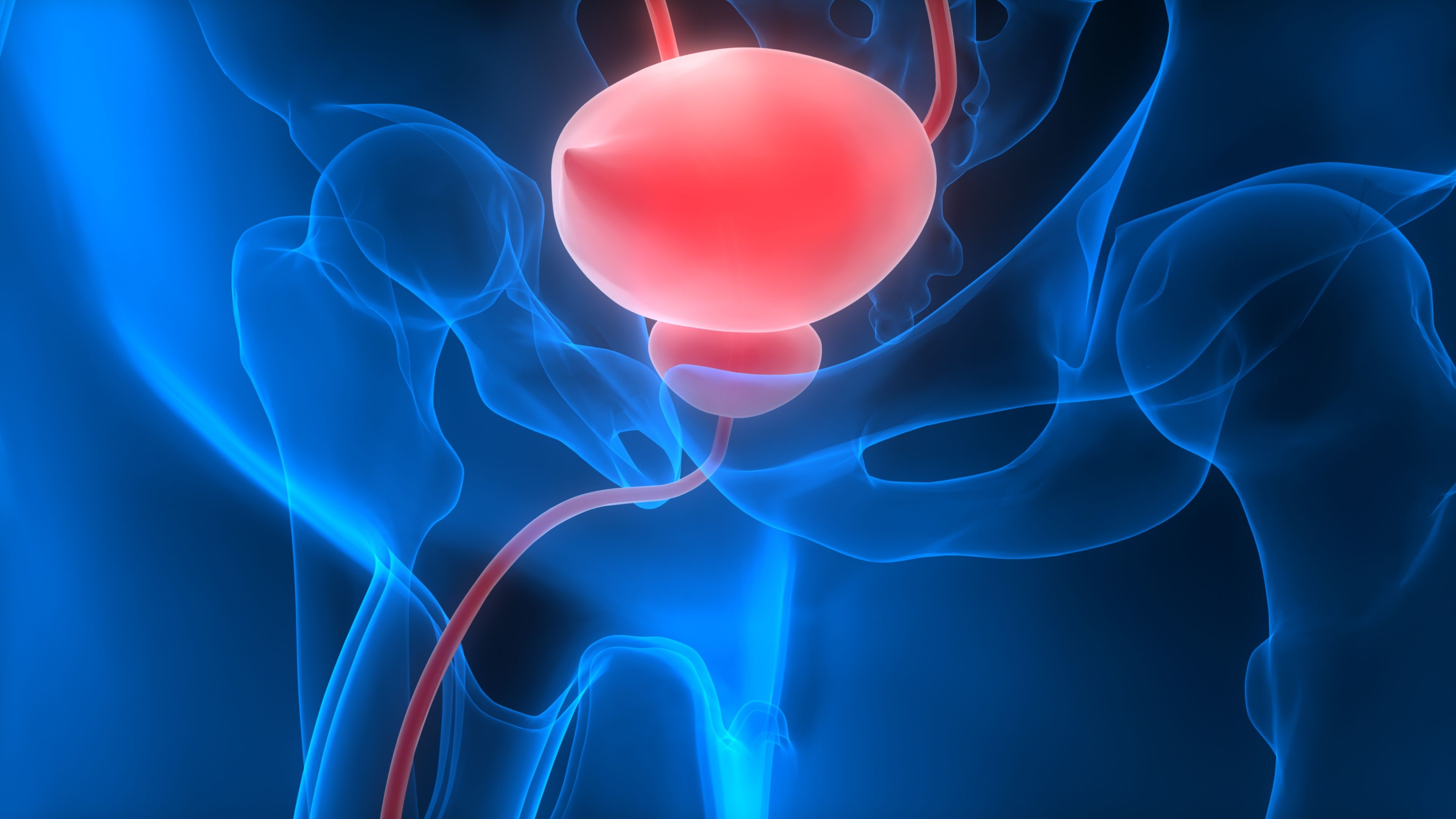Nivolumab Combo Significantly Boosts Survival in Urothelial Carcinoma
Findings from the CheckMate-901 study support the use of frontline nivolumab plus gemcitabine/cisplatin in advanced urothelial carcinoma.
"In the rapidly evolving treatment landscape, these results provide additional support for [nivolumab] plus [gemcitabine-cisplatin] as a first-line treatment option in patients with advanced urothelial carcinoma," according to Guru Sonpavde, MD.

Investigators reported statistically significant and clinically meaningful overall survival (OS) and progression-free survival (PFS) improvements in patients with metastatic urothelial carcinoma when combining nivolumab (Opdivo) with gemcitabine/cisplatin as frontline therapy, according to data from the phase 3 CheckMate-901 study (NCT03036098) presented at the American Urological Association (AUA) 2024 Annual Meeting.1
The treatment combination was approved by the FDA in March 2024 based on the results of CheckMate-901.2
“Cisplatin based chemotherapy has been the first-line standard of care for eligible patients with advanced urothelial carcinoma for decades.3-5 Although avelumab (Bavencio) has shown a survival benefit as maintenance therapy, only the subset of patients who do not have disease progression with first-line platinum-based chemotherapy are eligible.6,7 For the phase 3 CheckMate-901 trial, we evaluated up-front combination therapy with nivolumab plus gemcitabine cisplatin…followed by nivolumab monotherapy vs [gemcitabine-cisplatin] alone in eligible patients with previously untreated, advanced urothelial carcinoma,”8 said presenting author Guru Sonpavde, MD, medical director of Genitourinary Oncology, assistant director of the Clinical Research Unit and Christopher K. Glanz Chair for Bladder Cancer Research at the AdventHealth Cancer Institute in Orlando, Florida.
Patients 18 years of age or older with previously untreated, resectable or metastastic urothelial carcinoma involving the renal pelvis, ureter, bladder, or urethra who were cisplatin eligible and with an ECOG Performance Status of 0-1 were eligible for inclusion in the study. Participants “received [nivolumab] 360 mg plus [gemcitabine-cisplatin] every 3 [weeks] for up to 6 cycles followed by [nivolumab] 480 mg every 4 [weeks] until disease progression/unacceptable toxicity or up to a maximum of 2 years, or gemcitabine-cisplatin every 3 [weeks] for up to 6 cycles,” the investigators wrote. The primary end points were overall survival (OS) and progression-free survival (PFS) per blinded independent central review. Key secondary end points included OS and PFS by PD-L1 of 1 or greater and health-related quality of life. Median study follow-up was 33.6 months (range, 7.4-62.4 months). A total of 304 patients were randomly assigned to each arm.
The investigators reported a median OS of 21.7 months (95% CI, 18.6-26.4) in the nivolumab plus gemcitabine-cisplatin arm compared with 18.9 months in the gemcitabine-cisplatin arm (95% CI, 14.7-22.4) (P = .0171). Median PFS per blinded independent central review was 7.9 months (95% CI, 7.6-9.5) in the nivolumab plus gemcitabine-cisplatin arm vs 7.6 months (95% CI, 6.1-7.8) in the gemcitabine-cisplatin arm.
In the nivolumab plus gemcitabine-cisplatin arm, 84% of patients had a 50% or greater reduction from baseline in sum of diameter of target lesions per blinded independent central review in all responders, 48% had a 75% or greater reduction, and 28% had a 90% or greater reduction. In the gemcitabine-cisplatin arm, 80% had a 50% or greater reduction, 40% had a 75% or greater reduction, and 20% had a 90% or greater reduction.
Any-grade adverse events (AEs) were observed in 97 patients in the nivolumab plus gemcitabine-cisplatin arm vs 93 in the gemcitabine-cisplatin alone arm. Grade 3 or higher AEs were seen in 62 patients in the nivolumab plus gemcitabine-cisplatin arm vs 52 in the gemcitabine-cisplatin arm.
“To summarize, [nivolumab] plus [gemcitabine-cisplatin] showed significant and clinically meaningful benefit in OS, PFS, and response over [gemcitabine-cisplatin] alone. As first-line treatment in advanced urothelial carcinoma, the CR rate approximately doubled for [nivolumab] plus [gemcitabine-cisplatin] to 21.7%, with a median duration of CR of 37.1 months. These benefits were attained with a finite duration of chemotherapy, up to 6 cycles, and a maximum of 2 years of nivolumab. Analyses further characterizing patients who responded are warranted, especially in those who achieved CR. The safety in the responders was consistent with data in the ITT overall population.8 In the rapidly evolving treatment landscape, these results provide additional support for [nivolumab] plus [gemcitabine-cisplatin] as a first-line treatment option in patients with advanced urothelial carcinoma,” Sonpavde said.
References
- Sonpavde G, van der Heijden MS, Powles T, et al. Nivolumab plus gemcitabine-cisplatin versus gemcitabine-cisplatin alone in patients with previously untreated unresectable or metastatic urothelial carcinoma: results of analyses to characterize benefit in responders from the phase 3 CheckMate 901 trial. Presented at: 2024 American Urological Association Annual Meeting. May 3-6, San Antonio, Texas. PD34-11
- FDA approves nivolumab in combination with cisplatin and gemcitabine for unresectable or metastatic urothelial carcinoma. News release. US Food and Drug Administration. March 6, 2024. Accessed March 7, 2024. https://www.fda.gov/drugs/resources-information-approved-drugs/fda-approves-nivolumab-combination-cisplatin-and-gemcitabine-unresectable-or-metastatic-urothelial
- von der Maase H, Hansen SW, Roberts JT, et al. Gemcitabine and cisplatin versus methotrexate, vinblastine, doxorubicin, and cisplatin in advanced or metastatic bladder cancer: results of a large, randomized, multinational, multicenter, phase III study. J Clin Oncol. 2000;18(17):3068-3077. doi:10.1200/JCO.2000.18.17.3068
- von der Maase H, Sengelov L, Roberts JT, et al. Long-term survival results of a randomized trial comparing gemcitabine plus cisplatin, with methotrexate, vinblastine, doxorubicin, plus cisplatin in patients with bladder cancer. J Clin Oncol. 2005;4602-4608. doi:10.1200/JCO.2005.07.757
- Yu E-M, Mudireddy M, Biswas R, Aragon-Ching JB. The role of switch maintenance therapy in urothelial cancers. Ther Adv Urol. 2023. Jan 13:15:17562872221147760. doi:10.1177/17562872221147760
- Powles T, Park SH, Voog E, et al. Avelumab maintenance therapy for advanced or metastatic urothelial carcinoma. N Engl J Med. 2020;383(13):1218-1230. doi:10.1056/NEJMoa2002788
- BAVENCIO (avelumab) prescribing information. https://www.bavencio.com/hcp?can=Dec+2021+NIGHT+Brand+Generic%3BS%3BPH%3BBR%3BONC%3BHCP%3BBR&agn=Brand_Generic_General_Prescribing+Info_Exact&maty=e&kewo=avelumab%20prescribing&cid=2304-bavhcp-pse-goog-default&gclsrc=aw.ds&&gclid=CjwKCAjw3NyxBhBmEiwAyofDYRfs-lpZSisbxUm5Apf37pm_Et4waBbRi6WV7lO2mgdPqNn7APSszRoC7yoQAvD_BwE
- van der Heijden MS, Sonpavde G, Powles T, et al. nivolumab plus gemcitabine-cisplatin in advanced urothelial carcinoma. N Engl J Med. 2023;389(19):1778-1789. doi:10.1056/NEJMoa2309863